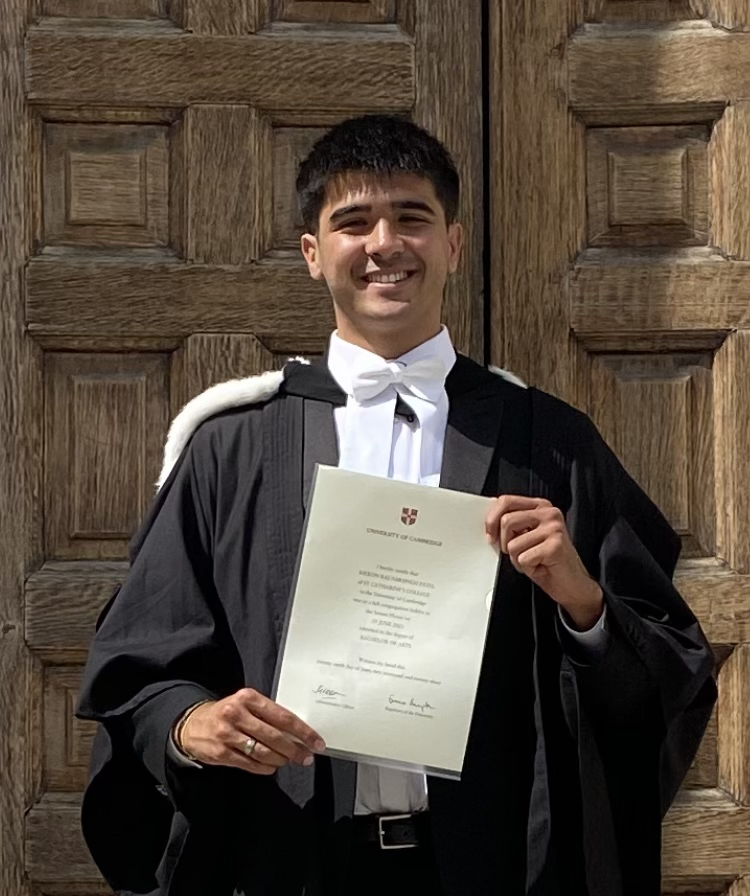Enjoy History GCSE – Simple Revision Methods
Let’s be honest, revision can sometimes feel like a chore – even for the most fascinating of subjects like history. But what if I told you that with a few tweaks and a dash of creativity, studying for your history GCSE could become something you actually look forward to?
Welcome to your go-to spot for shaking up the study blues and injecting some life into those pages of the past. The aim here is simple: to guide you through the maze of history GCSE topics with ease and a bit of fun. With the right approach, you can master how to revise for history GCSE without the dread. Think of this as your history revision haven – a place where “how many history GCSE papers are there?” becomes a point of intrigue rather than anxiety. We’ll share strategies that make remembering the past a walk in the park.
So, if you’re ready to turn those yawns into ‘aha!’ moments, let’s embark on this historical journey together!
Make Consistent History GCSE Study Routine
First things first, let’s talk schedules. Now, I’m not suggesting a minute-by-minute breakdown that leaves you no room for a spontaneous cuppa, but a bit of structure goes a long way. Start by mapping out your week. Identify your chill times and your peak focus times. Are you a morning person, or does your brain hit its stride when the owls start hooting? Slot in your history GCSE revision accordingly. Keep it simple: two hours on a Tuesday evening for AQA GCSE history past papers, an hour on a Thursday for the nitty-gritty of the AQA GCSE history topics, and so on. The key here is consistency and variety to keep things fresh – a vital part of how to revise for history GCSE effectively.
Breaking down the syllabus can seem like trying to eat an elephant in one bite – impossible, right? So, how about we tackle this beast one bite at a time? Take the GCSE history topics and spread them out. Allocate specific topics to specific days. Monday might be all about the movers and shakers of the Industrial Revolution, while Wednesdays could delve into the Cold War espionage. The key here is consistency and variety to keep things fresh.
Watch Movies to Revise for History GCSE

Revision doesn’t have to be a snooze-fest; it’s time to mix things up and add some excitement to your study sessions for history GCSE. Ditch the dusty textbooks occasionally and dive into some thrilling historical documentaries. Imagine wrapping up in a duvet with popcorn and still calling it revision—because with the right film, that’s exactly what you’re doing!
Don’t just watch passively, though. Grab a stack of flashcards, jot down key events and figures as they come up, and bam! You’ve got yourself a living, breathing history GCSE flashcard set. If you’re studying the Cold War, for example, a documentary on the Cuban Missile Crisis can bring those edgy standoffs and strategic moves to life, far beyond what’s in the Edexcel GCSE history past papers.
And who said mind maps are just pretty notes? Sketch out a mind map while watching a documentary on the Tudors, and you’re basically weaving a web of intrigue and power struggles that would give any AQA GCSE history specification a run for its money.
For the tech-savvy, there’s a treasure trove of interactive resources online. Jump into virtual timelines, where you can click your way through the ages, making the GCSE history topics you’re covering as tangible as if you were a time traveller.
Whether it’s flashcards that flip to reveal the fate of Anne Boleyn or a mind map that turns the Russian Revolution into a maze of alliances and betrayals, these tools are not just about cramming facts—they’re about connecting with the past in a way that sticks. So, when the OCR history A-level past papers ask you to detail the causes of World War II, you’ll remember that documentary scene, not just the textbook page.
Here are the Movies that Might Help!
- The King’s Speech – Provides insight into British monarchy, WWII politics, and King George VI’s reign.
- Schindler’s List – Offers a harrowing look at the Holocaust and the impact of WWII on Jewish communities.
- Darkest Hour – Focuses on Winston Churchill’s leadership during the early days of WWII.
- Pride – Depicts social and community struggles in Britain, touching on the themes of the 1984 miners’ strike and LGBT rights.
- Gandhi – Chronicles the life of Mahatma Gandhi and the struggle for Indian independence from British rule.
- Selma – Covers the civil rights movement in America, focusing on the 1965 Selma to Montgomery voting rights marches.
- The Imitation Game – Tells the story of Alan Turing and the Bletchley Park team’s effort to break the Enigma code during WWII.
- Suffragette – Details the early feminist movement and the fight for women’s voting rights in Britain.
- A Night to Remember – Offers a portrayal of the sinking of the Titanic, useful for understanding early 20th-century society and the maritime history.
- 12 Years a Slave – Provides a personal narrative of slavery in the United States, adding depth to the study of American history and civil rights.
History GCSE – Making the Most of Past Papers
And how many History GCSE papers are there, you ask? Enough to keep you busy, but not so many that you can’t tackle them with a solid plan. Remember, it’s not just about reading; it’s about doing. Simulate exam conditions, time yourself, and go over the mark schemes. Learn how to answer history GCSE questions not just correctly, but cleverly.
When you get down to history GCSE, past papers are like the ultimate cheat sheet—they show you exactly what the examiners are after. Let’s break it down with some nifty tricks.
Grab the Past Papers
First off, grab a pile of past papers. Whether it’s AQA, Edexcel, or OCR, every board has its own flavour. Scoot over to their websites and download a bunch. Don’t just stick to one year; dig back to get a variety of questions and mark schemes.
Test Yourself
Now, set up a mock exam scenario. Yep, it’s like having a dress rehearsal in your bedroom. No peeking at the answers or texting your mate for help! Timing is key—this is how you get a feel for the real deal.
Mark Yourself
Mark schemes might look like ancient hieroglyphs at first glance, but they’re actually pure gold. They lay out what the examiners want to see for those top-tier marks. Take a gander at the keywords and phrases that keep popping up. Words like “evaluate” and “analyse” are your clues on how to structure your answers.
Analyse the Outcome
Okay, so you’ve done a paper and checked it against the mark scheme. Now what? Time for some detective work. Where did you lose marks? Was it forgetting key dates, or maybe not explaining your points fully? This is where you fine-tune your revision strategy.

Jonas T.
English | History | Geography Tutor
Student at UNIVERSITY OF OXFORD
£26 Per session
Book Free TrialDo not Hesitate Using Apps for History GCSE Revision!
In the whirlwind of History GCSE prep, it’s easy to feel a bit like you’ve time-travelled to the ancient past. Fret not—modern tech’s got your back, turning revision from a snooze-fest into something you can actually get psyched about. Here’s how to give your study sessions a digital makeover.
App-solutely Essential Tools
Let’s talk apps, those little icons of joy that can sling you from confused to clued-up in no time. Here’s a rundown of six superhero apps ready to boost your History GCSE revision:
- Quizlet: Flashcards, quizzes, and games all customisable for your AQA, Edexcel, or OCR topics. It’s like having a mini-test on your phone, minus the sweaty palms.
- Timemap: Think of it as a time machine in your pocket, letting you zoom in on historical events and see them in context.
- GCSEPod: It’s like Spotify, but for revision. Plug into a playlist of bite-sized lessons across all your GCSE history topics.
- Kahoot!: Turn your revision into a pub quiz (minus the pub) and challenge your mates or just test yourself.
- Gojimo: This one’s packed with practice questions for all your subjects, including those pesky History GCSE past papers.
- BBC Bitesize: Not just an app, but a lifeline, chock-full of study notes, quizzes, and videos tailored to your exam board’s spec.
Social Media – The Study Buddy You Didn’t Know You Needed
Let’s not forget social media. Beyond memes and cat videos, it’s a treasure trove for revision. Join a Facebook study group or a History GCSE subreddit to exchange notes, discuss how to answer those tricky exam questions, and pick up revision strategies. Sometimes, just knowing there are others in the same boat can be a real boost.
Twitter’s buzzing with history buffs, educators, and even exam boards—follow them for insights, tips, and maybe a few words of wisdom when you’re feeling the revision blues.
Leveraging these digital tools can transform your revision from a dreaded chore into an interactive, and dare I say, enjoyable journey through time. Give them a whirl, and who knows? You might just find yourself a history buff by the time the exams roll around.

Aran A.
Maths | English Tutor
Student at UNIVERSITY OF CAMBRIDGE
£20 Per session
Book Free TrialYouTube- Revision Videos
Not keen on wrestling with hefty textbooks or getting buried under a mountain of notes? No worries! If you’re the kind who’d rather listen up than read up, then YouTube is your trusty steed in this history GCSE quest.
And the best part? It’s like having a history tutor in your pocket, minus the schedule clashes. So for all you auditory learners, switch on, tune in, and let those YouTube history channels be the soundtrack to your GCSE success. With a pair of headphones and a click, you’re all set to conquer those history GCSE past papers and topics.
So, when the reading gets tough, the tough get listening! Turn up the volume and let those history lessons sink in. After all, how to revise for history GCSE shouldn’t be a one-size-fits-all. Find your groove, hit play, and let the learning begin!
Here are The Helpful Videos:
- Crush Cource
- AQA GCSE History Conflict and Tension 1918-1939
- AQA GCSE History Conflict and Tension 1918-1939
- The Whole of AQA GCSE History
Why are the Students from Top Universities the Best Tutors?
Conclusion
History GCSE isn’t just about memorising dates and facts, it’s about understanding our past to shape our future. So, as you flip through those past papers and delve into the rich tapestry of human history, remember to keep a positive mindset. Let curiosity be your compass, and don’t forget to enjoy the ride!
Before you dash off to your next revision session, remember that Edumentors is just a click away, ready to work with expert tutors who’ve got all the history GCSE revision hacks you could ask for.
So, go forth, young historians! Embrace the challenge, delight in the learning, and remember: history isn’t just a subject, it’s a story, and you’re part of it. Wishing you buckets of luck in your exams.








